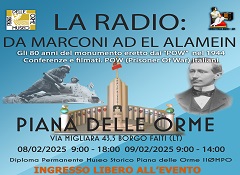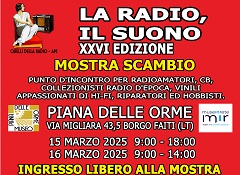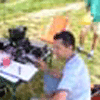COMUNICATO IMPORTANTE DEL GAREC
COMUNICATO IMPORTANTE DEL GAREC
03.07.2010
Con il 1° giugno ha inizio la stagione degli uragani che vedrà  ancora una volta i radioamatori delle zone interessate in prima linea per mantenere creare delle comunicazioni alternative.
Nella Regione 1 fortunatamente non siamo colpiti da tali fenomeni metereologici, però occorre che tutti i radioamatori, in questo periodo si astengano dall'utilizzare le frequenze usate per le emergenze nei Paesi dell'area Centro americana.
TESTO COMPLETO ORIGINALE
IARU Region 1 Emergency Communications Co-Ordinator
The Atlantic Hurricane Season officially runs from 1st June to 30 November each year and Tropical Storm Alex has become the first 'named' storm of this year. Amateur Radio continues to play a part in gathering and distributing information for the weather and emergency services each year.
Radio Amateurs in Region 1 are reminded that the following frequencies may be in use by nets in North and Central America to track and deal with the consequences of these severe weather events. It is possible for Region 1 amateurs to cause unintentional QRM to these nets so please listen carefully if operating near these frequencies.
14.300 MHz is used by the Maritime Mobile Service Net daily and as well as handling traffic from Maritime Mobile Stations, also gathers weather reports from maritime stations to assist forecasters.
14.325 MHz is used by the Hurricane Watch Net and the net is established whenever it appears that a storm may affect the US mainland. The net gathers weather information and links to the American National Hurricane Centre.
14.265 MHz is used by the Salvation Army Team Emergency Radio Network ( SATERN ) provides Health and Welfare traffic links for those in affected areas as well as supporting the Salvation Army Disaster relief response should a hurricane strike.
Frequencies used in Cuba: 7.045, 7.080, 7.110 3.740 MHz
Frequencies used in Central America, Red Centro Americana: 7.090 and 3.750MHz
Guatemala: 7.075 MHz
Nicaragua: 7.098 MHz
Mexico (FMRE): 3.690 and 7.060 MHz
Cuba and Mexico co-operate with long distance relays on 40m when propagation makes this possible.
Local emergency communications groups may also activate if a hurricane approaches their area and those frequencies would be announced at the time.
03.07.2010
Con il 1° giugno ha inizio la stagione degli uragani che vedrà  ancora una volta i radioamatori delle zone interessate in prima linea per mantenere creare delle comunicazioni alternative.
Nella Regione 1 fortunatamente non siamo colpiti da tali fenomeni metereologici, però occorre che tutti i radioamatori, in questo periodo si astengano dall'utilizzare le frequenze usate per le emergenze nei Paesi dell'area Centro americana.
TESTO COMPLETO ORIGINALE
IARU Region 1 Emergency Communications Co-Ordinator
The Atlantic Hurricane Season officially runs from 1st June to 30 November each year and Tropical Storm Alex has become the first 'named' storm of this year. Amateur Radio continues to play a part in gathering and distributing information for the weather and emergency services each year.
Radio Amateurs in Region 1 are reminded that the following frequencies may be in use by nets in North and Central America to track and deal with the consequences of these severe weather events. It is possible for Region 1 amateurs to cause unintentional QRM to these nets so please listen carefully if operating near these frequencies.
14.300 MHz is used by the Maritime Mobile Service Net daily and as well as handling traffic from Maritime Mobile Stations, also gathers weather reports from maritime stations to assist forecasters.
14.325 MHz is used by the Hurricane Watch Net and the net is established whenever it appears that a storm may affect the US mainland. The net gathers weather information and links to the American National Hurricane Centre.
14.265 MHz is used by the Salvation Army Team Emergency Radio Network ( SATERN ) provides Health and Welfare traffic links for those in affected areas as well as supporting the Salvation Army Disaster relief response should a hurricane strike.
Frequencies used in Cuba: 7.045, 7.080, 7.110 3.740 MHz
Frequencies used in Central America, Red Centro Americana: 7.090 and 3.750MHz
Guatemala: 7.075 MHz
Nicaragua: 7.098 MHz
Mexico (FMRE): 3.690 and 7.060 MHz
Cuba and Mexico co-operate with long distance relays on 40m when propagation makes this possible.
Local emergency communications groups may also activate if a hurricane approaches their area and those frequencies would be announced at the time.



 . . . . . . . . . . .
. . . . . . . . . . . 







